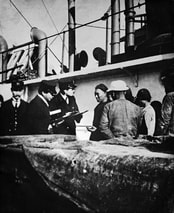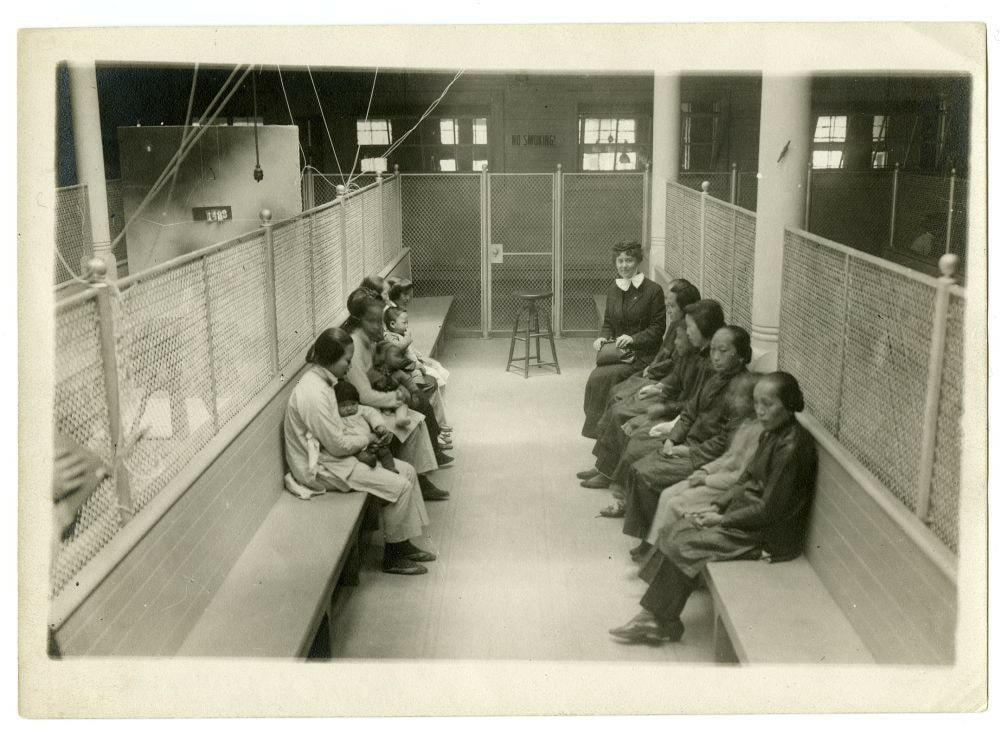Island Poetry (1910-1940)
carving of Poem 135 from Angel Island

Even if it is built of jade, it has turned into a cage
Poem 135
Is money worth sacrifice?

When I see my old country fraught with chaos
I, a drifting leaf, become doubly saddened
Poem 27
I, a drifting leaf, become doubly saddened
Poem 27
How can I help my home if I'm lost?

All my compatriots should please be mindful
Once you have some small gains, return home early
Poem 42
Once you have some small gains, return home early
Poem 42
How much success is enough?
I gaze to the south at the hospital
And look to the west at the army camp.
This author says, "What happiness is there in this?"
Poem 44
And look to the west at the army camp.
This author says, "What happiness is there in this?"
Poem 44
Will success lead to fulfillment?
It is because of poverty at home that I am detained here.
It has led to my humiliation, which is truly heartbreaking
Poem 59
It has led to my humiliation, which is truly heartbreaking
Poem 59
Who is to blame for my misery?
Home is home for a reason. It has a sense of permanence, comfort, and belonging. Most people do not just leave their home for no reason, especially to go somewhere thousands of miles away where there is a new language and culture. For those economic migrants that found themselves at Angel Island in the 1900s, they had made a hard decision to leave their lives behind in search of monetary success, as described in poem 42. However, their dreams were dashed by the harsh U.S. immigration system. The Angel Island poems convey the frustrations of people stuck in a physical and mental vacuum. In that space, they have no anchor, nothing to live for, as what purpose in life they did have was taken away from them (poem 44). They are lost, with many of the poems talking about the loneliness that permeated Angel Island. One of the biggest questions immigrants often face is whether or not things would have been better if they had not left their home at all, and for the Chinese immigrants stuck on Angel Island, this question resonated strongly. They had left their home to gain more control over their futures but instead lost what little autonomy they had. Who is there to blame for their situation though? Many of the poems, like poems 27 and 59, hint at resentment towards China for failing to provide stability for them. Can they love a home who could not provide a livelihood for them? Are they still allowed to love a home that they willingly left? These questions are not only relevant to the Angel Island immigrants, but also for all other immigrants, as they struggle to grasp their identity in a foreign place.



